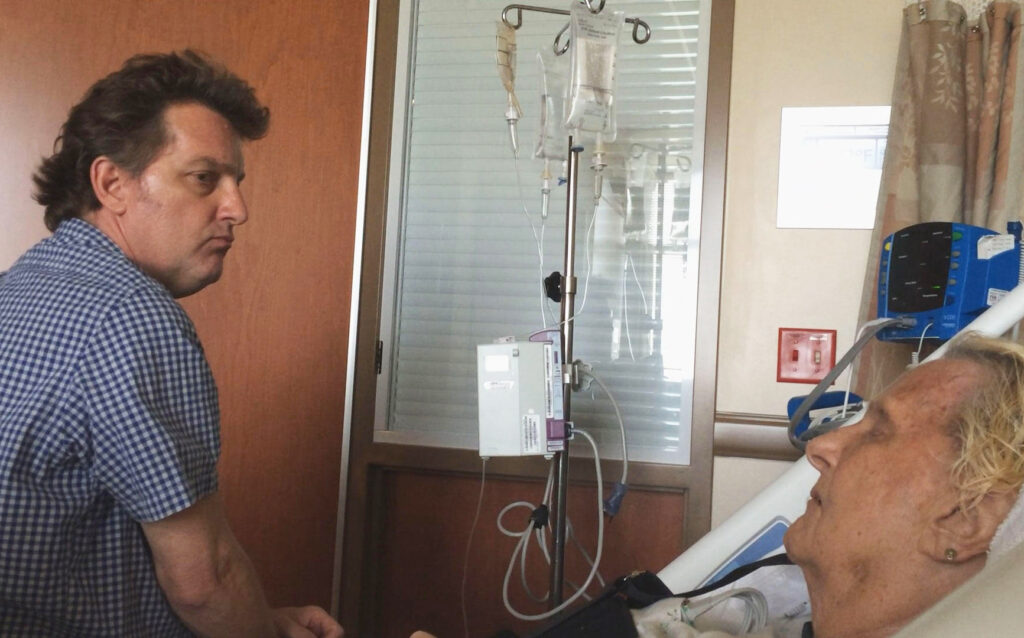If you’re thinking that sitting on the couch with a bowl of popcorn on your lap is at the bottom of the list of healthy activities, you’re wrong. Just like a green smoothie is good for your body, watching these illuminating health documentaries will nourish your mind. It’s hard to keep up with everything happening in the healthcare industry. Thanks to these documentaries, you can get up to speed on the latest health-related developments, research, and, most importantly, scandals.
You’re never going to perform open-heart surgery on yourself, but that doesn’t mean your health isn’t in your hands. Instead of the usual rom-com or action flick, spend Saturday evening educating yourself on health.
From an exposé on the injustices of the for-profit healthcare industry to a filmmaker who eats nothing but fast food for a month, these must-watch documentaries will open your eyes, or, at the very least, make you rethink dousing your popcorn with extra butter.
‘Bleed Out’ (TV-14, 2018)

Filmmaker Stephen Burrows didn’t plan on making a documentary about the for-profit healthcare industry. But, when his mother woke up from a coma with permanent brain damage following what was supposed to be a routine hip replacement procedure, he decided to film what was happening.
“Bleed Out” brings attention to the disturbing statistic that medical errors are the third-leading cause of death in the United States. Each year, thousands of people are impacted by medical errors. Unfortunately, due to a lack of funds, time, and resources, those people are unable to get justice for themselves or their loved ones.
This documentary explores the lack of transparency and accountability in the healthcare industry. In many states, legislation protects doctors and healthcare facilities from malpractice suits. Even if you’re one of the Americans who find a leftover object in your body after surgery, it can be an uphill battle to get answers, which is why it’s essential to know your rights.
‘Super Size Me’ (PG-13, 2004)
This probably isn’t the documentary you want to play while you’re eating dinner. While ordering fast food for every meal might sound like a dream come true, director Morgan Spurlock shows the shocking health ramifications of eating McDonald’s for an entire month.
Beyond Filet-O-Fish and Big Macs, Spurlock dives into the ethical responsibilities fast-food corporations ignore regarding the health of the customers they serve. Because this food is cheap and widely available, people with lower socioeconomic status are more often likely to consume it.
Study after study shows that people in lower-income brackets are more likely to be obese, and fast food is frequently cited as one of the contributing factors. The film discusses the obesity epidemic that plagues Western countries like the United States and highlights the increased health risks for people who are obese.
‘That Sugar Film’ (NR, 2014)
If you shouldn’t watch “Super Size Me”while eating dinner, then you shouldn’t watch That Sugar Film while eating dessert. After watching this documentary, however, you will know that sugar is in a lot more than just your beloved Cookies ‘n Cream ice cream. In fact, as you will learn, there are large amounts of sugar in foods that are promoted and advertised as “healthy.”
“That Sugar Film” joins the ranks of other important documentaries about food and health like “Forks Over Knives” and “Thin.” The former looks at the debate around red meat while the latter covers eating disorders.
In this documentary, filmmaker Damon Gameau investigates the typical American diet and reveals that it primarily consists of sugar. He also examines the laundry list of sugar-induced health problems such as diabetes and dental decay.
‘Heal’ (NR, 2017)
When was the last time you claimed to be “stressed”? If you’re the typical American, it was likely quite recently. Perhaps you claimed you were stressed just before reading this article! “Heal,” a documentary by director Kelly Noonan, underlines the fact that people who live in the United States are chronically stressed, and it has serious health consequences.
This film makes the case that most illnesses are either directly related to stress or, at least, worsened by it. You will learn that stress compromises the human immune system. When you get sick, stress makes you even sicker. You should keep this concept in mind when watching films about cancer like “The Fault in Our Stars” and “50/50.”
Over the course of the documentary, scientists and spiritual healers explore the connection between the mind and body as it pertains to healing. Many studies support that serious illnesses such as chronic pain, for example, can be managed through spiritual assistance, psychological treatment, and even alternative medicine, but if you’re even more curious about the connection between your mental and physical state, then make watching this documentary a priority. Experts with a variety of backgrounds, including medical and homeopathic backgrounds, shed light on what the American healthcare system is doing wrong, and how it can rectify the situation.
From how to handle stress to what your diet should be, it’s easy to rely on information from the mainstream healthcare industry. While the advice of healthcare professionals is generally trustworthy, it shouldn’t be followed blindly. Because the best advocate for your health is you, it’s imperative to educate yourself. These illuminating documentaries are a good (and entertaining) place to start.
– by Frankie Wallace